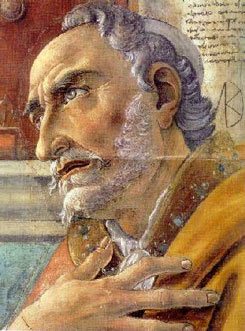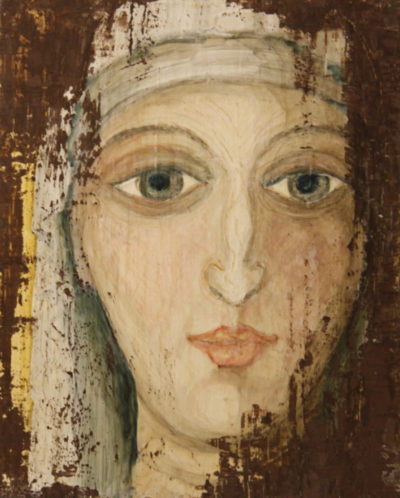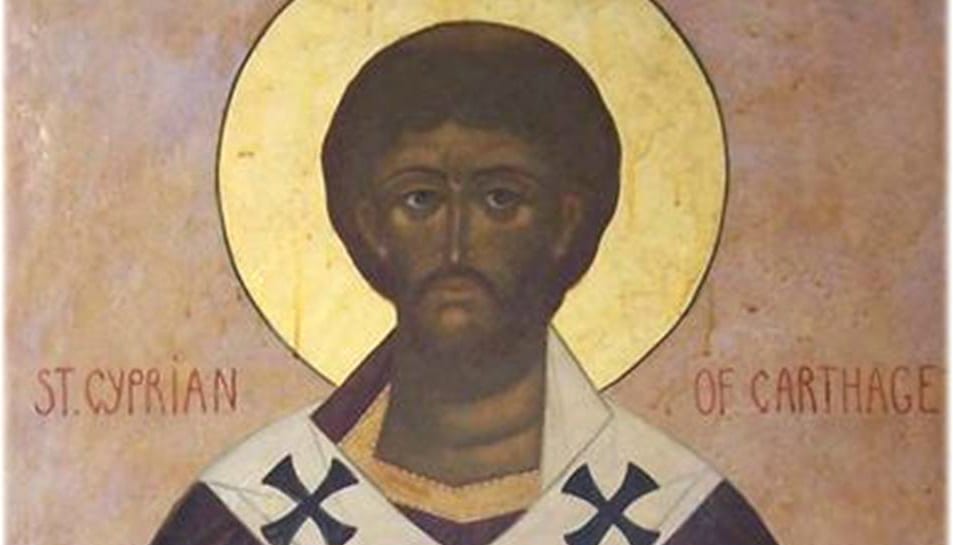
A little something for self-proclaimed Christians in Trumpeting America. Not my opinions, just quotes. Judge for yourselves whether or not this is your religion. Yeah, yeah, it's a lot of quotes. And that's the point -- an overwhelming mass of testimony. And this isn't even all of it:
 |
for yours is the Kingdom of God.
. . . . But woe to you who are rich,
for you have received your credit."
--Jesus (Luke 6:24)
. . . . But woe to you who are rich,
for you have received your credit."
--Jesus (Luke 6:24)
"Now as He was going out on the road, one came running, knelt before Him, and asked Him, 'Good Teacher, what shall I do that I may inherit eternal life?'
So Jesus said to him, 'Why do you call me good? No one is good but One God. ... One thing you lack: Go your way, sell whatever you have and give to the poor, and you will have treasure in heaven; and come, take up the cross, and follow Me. �.It is easier for a camel to go through the eye of a needle than for a rich man to enter the kingdom of God.'"
(Mark 10:17-30)
So Jesus said to him, 'Why do you call me good? No one is good but One God. ... One thing you lack: Go your way, sell whatever you have and give to the poor, and you will have treasure in heaven; and come, take up the cross, and follow Me. �.It is easier for a camel to go through the eye of a needle than for a rich man to enter the kingdom of God.'"
(Mark 10:17-30)
 |
| (See Matthew 21:12�17, Mark 11:15�19, Luke 19:45�48, & John 2:13�16) |
for either he will hate the one and love the other,
or he will be devoted to the one and despise the other.
You cannot serve both God and money.'
The Pharisees, who were lovers of money,
heard all these things, and they ridiculed Jesus."
(Luke 16:13-14)
"So likewise, whoever of you
does not forsake all that he owns
cannot be My disciple."
--Jesus (Luke 14:33)
does not forsake all that he owns
cannot be My disciple."
--Jesus (Luke 14:33)
 |
| James (Yakov) |
Has not God chosen the poor of this world
to be rich in faith and heirs of the kingdom
which he promised to those who love him?
But you have dishonored the poor man.
Do not the rich oppress you
and drag you into the courts?
Do they not blaspheme
that Noble Name by which you are called?"
(James 2:5-7)
"Come now, you rich, weep and howl
for your miseries that are coming upon you!
Your riches are corrupted,
and your garments are moth-eaten.
Your gold and silver are corroded,
and their corrosion will be a witness against you
and will eat your flesh like fire.
You have heaped up treasure in the last days.
Indeed the wages of the laborers
who mowed your fields,
which you kept back by fraud, cry out;
and the cries of the reapers
have reached the ears of the Lord of Sabaoth.
You have lived on the earth in pleasure and luxury;
you have fattened your hearts as in a day of slaughter.
You have condemned,
you have murdered the just;
he does not resist you."
(James 5:1-6)
for your miseries that are coming upon you!
Your riches are corrupted,
and your garments are moth-eaten.
Your gold and silver are corroded,
and their corrosion will be a witness against you
and will eat your flesh like fire.
You have heaped up treasure in the last days.
Indeed the wages of the laborers
who mowed your fields,
which you kept back by fraud, cry out;
and the cries of the reapers
have reached the ears of the Lord of Sabaoth.
You have lived on the earth in pleasure and luxury;
you have fattened your hearts as in a day of slaughter.
You have condemned,
you have murdered the just;
he does not resist you."
(James 5:1-6)
 |
| One Heart & One Soul |
"Now all who believed were together,
and had all things in common,
and sold their possessions and goods,
and divided them among all, as anyone had need.
So continuing daily with one accord in the temple,
and breaking bread from house to house,
they ate their food with gladness and simplicity of heart,
giving Credit to God
and having Grace with all the people.
.... Now the multitude of those who believed
were of One Heart and One Soul;
neither did anyone say
that any of the things he possessed was his own,
but they had all things in common."
(Acts 2:44-47 & 4:32)
and had all things in common,
and sold their possessions and goods,
and divided them among all, as anyone had need.
So continuing daily with one accord in the temple,
and breaking bread from house to house,
they ate their food with gladness and simplicity of heart,
giving Credit to God
and having Grace with all the people.
.... Now the multitude of those who believed
| Peter & Paul |
neither did anyone say
that any of the things he possessed was his own,
but they had all things in common."
(Acts 2:44-47 & 4:32)
"...persons who are depraved in mind
and bereft of the truth,
imagining that godliness is a means of gain.
�But those who desire to be rich fall into temptation,
into a snare, into many senseless and hurtful desires
that plunge men into ruin and destruction.
For the love of money is the root of all evil;
it is through this craving
that some have wandered away from the faith
and pierced their hearts with many pangs."
--Apostle Paul (1 Timothy 6:5-10)
and bereft of the truth,
imagining that godliness is a means of gain.
�But those who desire to be rich fall into temptation,
into a snare, into many senseless and hurtful desires
that plunge men into ruin and destruction.
For the love of money is the root of all evil;
it is through this craving
that some have wandered away from the faith
and pierced their hearts with many pangs."
--Apostle Paul (1 Timothy 6:5-10)
"Then Peter said,
'Money and gold I do not have,
but what I do have I give you.'"
(Acts 3:6)
'Money and gold I do not have,
but what I do have I give you.'"
(Acts 3:6)
Note that all the recorded early Christian leaders (that I've found so far) unanimously agree that Jesus & the Apostles meant what they said:
 |
| Amma Syncletica of Alexandria (? to 350 AD) |
"Those who have endured the labors and dangers of the sea and then amass material riches, even when they have gained much desire more. They consider what they have at present to be nothing, and reach out for what they have not got. We, who have nothing that we desire, wish to acquire everything through God."
--Amma Syncletica of Alexandria (died 350AD)
--Amma Syncletica of Alexandria (died 350AD)
 |
| Augustine (354�430 CE) |
--Augustine (354�430 CE)
 |
| Tertullian (c. 160�c.220 CE) |
....
�We who share one mind and soul obviously have no misgivings about community of goods.�
� Tertullian, 160-225 AD
 |
| Basil (329�379 AD) |
"You are like one occupying a place in a theater, who should prohibit others from entering, treating that as one�s own which was designed for the common use of all.
Such are the rich. Because they were first to occupy common goods, they take these goods as their own. If each one would take that which is sufficient for one�s needs, leaving what is in excess to those in distress, no one would be rich, no one poor.
It is absurd and disgraceful for one to live magnificently and luxuriously when so many are hungry�If one who takes the clothing off another is a thief, why give any other name to one who can clothe the naked and refuses to do so?The bread that you store up belongs to the hungry; the cloak that lies in your chest belongs to the naked; the gold that you have hidden in the ground belongs to the poor. � How can I make you realize the misery of the poor? How can I make you understand that your wealth comes from their weeping?�
� Basil (329�379 AD)
 |
| Teresa de �vila (1515-1582) |
"Thank God for the things that I do not own.
.... Let nothing disturb you. Let nothing frighten you. Everything passes away except God.
....It is quite important to withdraw from all unnecessary cares and business, as far as compatible with the duties of one�s state of life, in order to enter the second mansion."
-- Teresa de �vila (1515-1582)
.... Let nothing disturb you. Let nothing frighten you. Everything passes away except God.
....It is quite important to withdraw from all unnecessary cares and business, as far as compatible with the duties of one�s state of life, in order to enter the second mansion."
-- Teresa de �vila (1515-1582)
 |
| Clare of Assisi (1194-1243 AD) |
"We become what we love and who we love shapes what we become. If we love things, we become a thing.
.... O blessed poverty, who bestows eternal riches on those who love and embrace her!"
-- Clare of Assisi (1194-1253 AD)
.... O blessed poverty, who bestows eternal riches on those who love and embrace her!"
-- Clare of Assisi (1194-1253 AD)
 |
| Justin Martyr (100-165 AD) |
�We who once took most pleasure in the means of increasing our wealth and property now bring what we have into a common fund and share with everyone in need.�
� Justin Martyr, 100-165 AD
 |
| Irenaeus, 130-200 AD |
�And instead of the tithes which the law commanded, the Lord said to divide everything we have with the poor. And he said to love not only our neighbors but also our enemies, and to be givers and sharers not only with the good but also to be liberal givers toward those who take away our possessions.�
�Irenaeus, 130-200 AD

�Private property is the fruit of iniquity. I know that God has given us the use of goods, but only as far as is necessary; and he has determined that the use shall be common. The use of all things that are found in this world ought to be common to all men. Only the most manifest iniquity makes one say to another, �This belongs to me, that to you.� Hence the origin of contention among men.�
� Clement of Alexandria, 150-215 AD (Paedagogus, 2)
� Clement of Alexandria, 150-215 AD (Paedagogus, 2)
 |
| Ambrose of Milan (340-397 AD) |
�Nature has poured forth all things for the common use of all people. And God has ordained that all things should be produced that there might be food in common for all, and that the earth should be the common possession of all. Nature created common rights, but usurpation has transformed them into private rights�God gave the same earth to be cultivated by all. Since, therefore, His bounty is common, how is it that you have so many fields, and your neighbor not even a clod of earth? �.You are not making a gift of your possession to the poor person. You are handing over to him what is his."
--Ambrose of Milan, 340-397 AD.
--Ambrose of Milan, 340-397 AD.
 |
| John Chrysostome (347-407 AD) |
�The rich are in possession of the goods of the poor, even if they have acquired them honestly or inherited them legally.
Not to enable the poor to share in our goods is to steal from them and deprive them of life. The goods we possess are not ours but theirs. When you are weary of praying and do not receive, consider how often you have heard a poor man calling, and have not listened to him. The dispersion of property is the cause of greater expenditure and so of poverty. Consider a household with husband and wife and ten children. She does weaving and he goes to the market to make a living; will they need more if they live in a single house or when they live separately? Clearly, when they live separately. If the ten sons each go his own way, they need ten houses, ten tables, ten servants and everything else in proportion� Dispersion regularly leads to waste, bringing together leads to economy.�
� John Chrysostom, 347-407 AD
Not to enable the poor to share in our goods is to steal from them and deprive them of life. The goods we possess are not ours but theirs. When you are weary of praying and do not receive, consider how often you have heard a poor man calling, and have not listened to him. The dispersion of property is the cause of greater expenditure and so of poverty. Consider a household with husband and wife and ten children. She does weaving and he goes to the market to make a living; will they need more if they live in a single house or when they live separately? Clearly, when they live separately. If the ten sons each go his own way, they need ten houses, ten tables, ten servants and everything else in proportion� Dispersion regularly leads to waste, bringing together leads to economy.�
 |
| Cyril of Alexandria (377-444AD) |
�Give away these earthly things, and win that which is in heaven. Give that which you must leave, even against your will, that you may not lose things later. Lend your wealth to God, that you may be really rich. Concerning the way in which to lend it, Jesus next teaches us saying: �Sell your possessions, and give alms, provide yourselves with purses that do not grow old, with a treasure in the heavens that does not fail� � Worldly wealth has many foes � but no one can do damage to the wealth that is laid up above in heaven.�
� Cyril of Alexandria, 378-444 AD
� Cyril of Alexandria, 378-444 AD
 |
| Gregory of Nyssa (330-395 AD) |
� Gregory of Nyssa, 330-395 AD
�Share everything with your brother. Do not say, �It is private property.� If you share what is everlasting, you should be that much more willing to share things which do not last.�
� The Didache, c. 90 AD, (Did. 4:8)
 |
| Cyprian of Carthage (200-258 AD) |
� Cyprian, 200-258 AD, (The Lapsed 11-12)
Lastly, the testimony of a Roman pagan in the 2nd century AD:
 |
| Lucian of Samasota (c.125 AD � 180+ AD) |
�Christians despise all possessions and share them communally.�
� Lucian (pagan author), 2nd century (Peregrinus 13)
Comments
Post a Comment